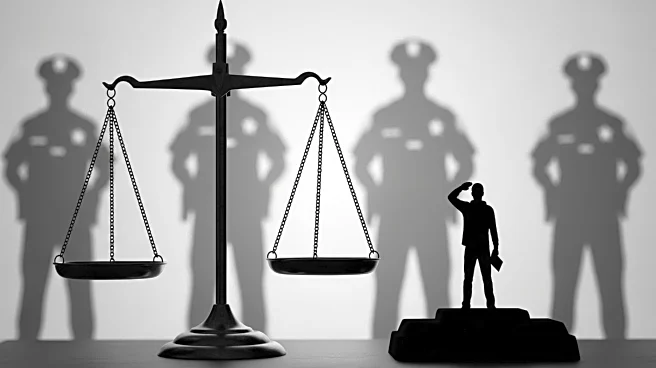What's Happening?
The trial of Sydney Reid, an anti-ICE protester accused of assaulting a federal officer, has brought to light the growing distrust of federal law enforcement among Washington, D.C. residents. During jury selection, potential jurors expressed skepticism about the integrity of ICE officers, citing personal experiences and broader concerns about immigration enforcement. Reid was arrested while filming the arrest of a non-citizen, and her defense argues that her actions were reactionary rather than assaultive. The trial underscores tensions between community members and federal officers amid heightened deportation efforts.
Why It's Important?
The trial reflects broader societal issues regarding trust in federal law enforcement and the impact of aggressive immigration policies. The skepticism voiced by potential jurors highlights the challenges faced by law enforcement in maintaining public confidence, particularly in communities affected by deportation actions. The case also raises questions about the balance between free speech rights and law enforcement duties, as Reid's actions were part of her protest against federal officers. The outcome of the trial may influence public perceptions and policy discussions around immigration enforcement.
What's Next?
As the trial progresses, the jury's decision will be closely watched for its implications on the relationship between federal officers and the communities they serve. The case may prompt further scrutiny of law enforcement practices and the treatment of protesters. Legal and advocacy groups may use the trial as a platform to push for reforms in immigration enforcement and to address concerns about civil liberties. The trial's conclusion could also impact future protests and community responses to federal actions.
Beyond the Headlines
The trial highlights the ethical and legal dimensions of protest and law enforcement interactions. It raises questions about the rights of individuals to document and protest government actions, and the responsibilities of officers to manage such situations without escalating tensions. The case may contribute to ongoing debates about the role of law enforcement in democratic societies and the protection of civil liberties.









